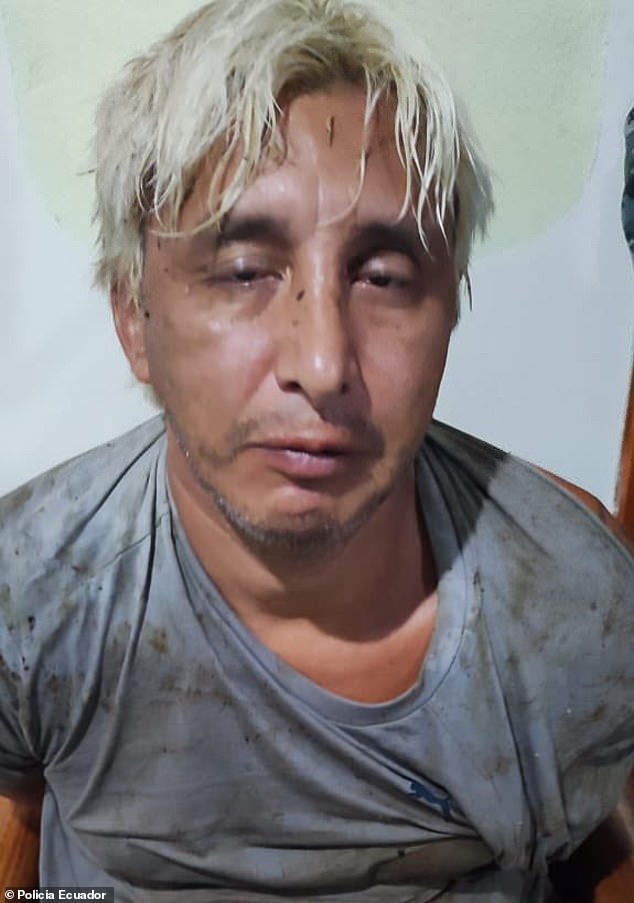Police in Ecuador say they have re-arrested a notorious gang leader nicknamed ‘El Salvaje’ just a day after the nation voted to back an unprecedented crackdown on criminal gangs in the country.
Fabricio Colón Pico, the head of the deadly Los Lobos gang, has been on the run since he escaped from prison in early January.
But police arrested the 44-year-old man this morning in the small town of Puerto Quito, in the northern Pichincha region.
They shared a mugshot, which shows him wearing a dirty gray blouse and dyed blonde hair.
He was one of 30 people who escaped from the Riobamba prison in January during a wave of riots and violent attacks by gangs across the country, taking advantage of the national chaos to escape from prison.
Fabricio Colón Pico (pictured), the head of the deadly Los Lobos gang, has been on the run since he escaped from prison in early January.
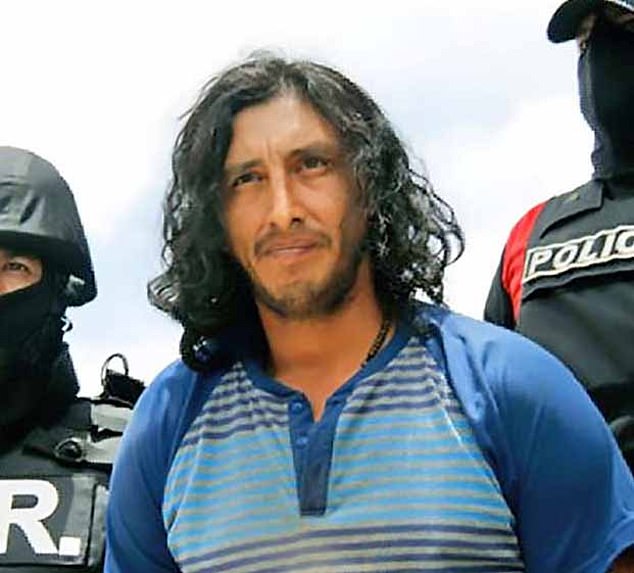
Pico heads the deadly gang of Los Lobos
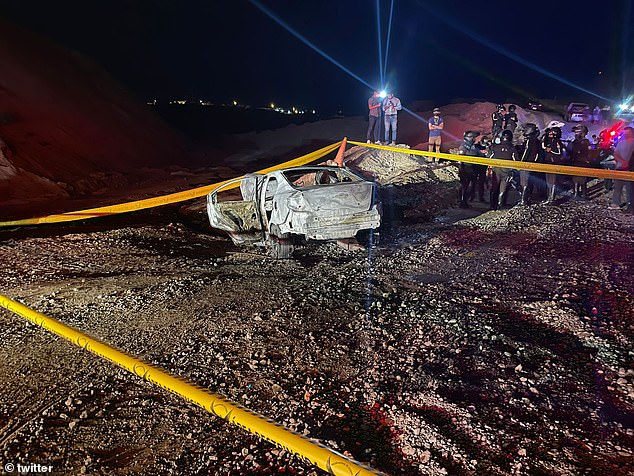
Gangs have inflicted widespread violence on the country, once considered one of the safest in South America.
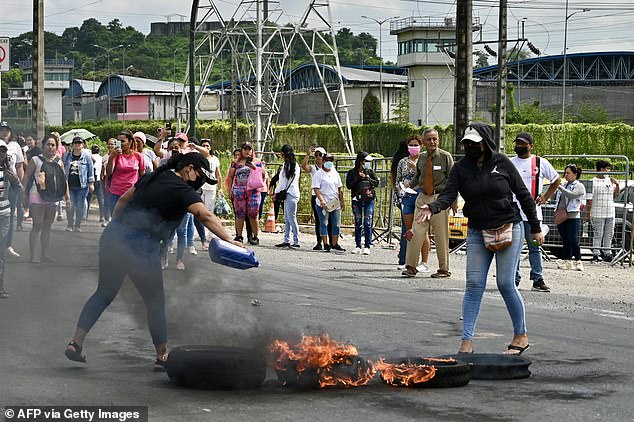
Ecuador has seen a massive increase in gang violence
Although twenty of the fugitives were quickly rearrested following their escape, Pico managed to evade capture for several months.
The sudden increase in violence that gangs in Ecuador, once considered one of the safest countries in South America, have inflicted on the nation led citizens to vote in a series of unprecedented repressive measures that give forces Armed forces and the country’s police have greater powers to fight organized crime.
The measures, proposed by President Daniel Noboa, 36, will allow the military to patrol the nation with the police. In addition to this, prosecutors will have more power to extradite convicted drug traffickers and increase sentences for crimes such as terrorism and murder.
Noboa said the government would now “have more tools to combat crime and restore peace to Ecuadorian families.”
Gangs like Los Lobos were designated as terrorist groups, and Noboa authorized Ecuador’s military to “neutralize” them in the days following the “internal armed conflict.”
Pico’s gang is affiliated with Albanian gangsters who help their South American colleagues export drugs to West and North Africa and then to Europe.
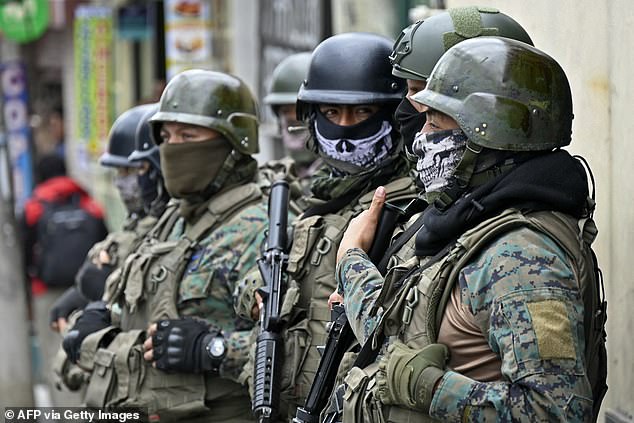
Soldiers supporting police forces stand guard in front of the El Inca prison in Quito on January 8, 2024.
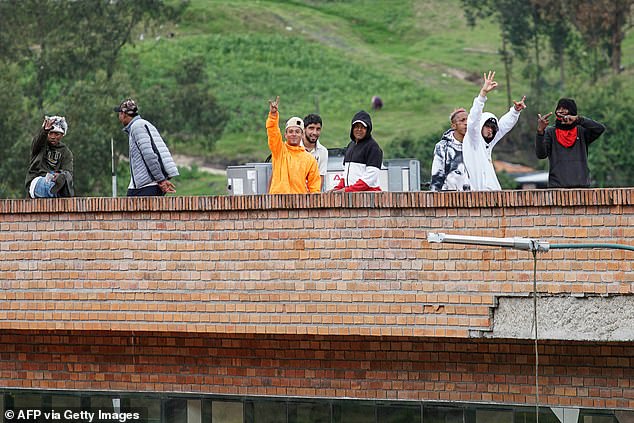
Inmates remain on the roof of the Turi prison, where they hold prison guards hostage, in Cuenca, Ecuador
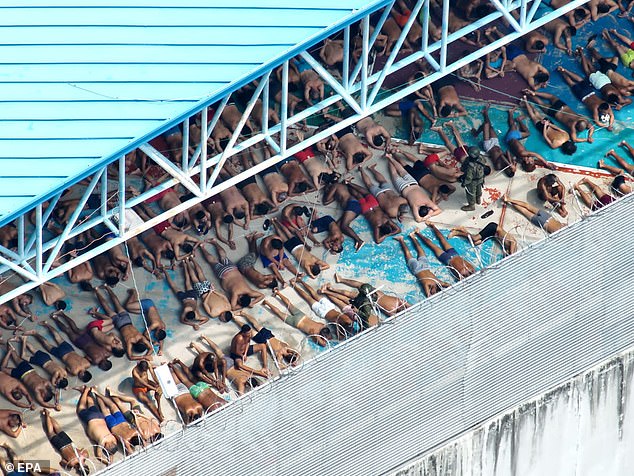
Photograph provided by the Ecuadorian Armed Forces of an intervention at the Litoral Penitentiary, after a riot broke out at the penitentiary center in Guayaquil, Ecuador.
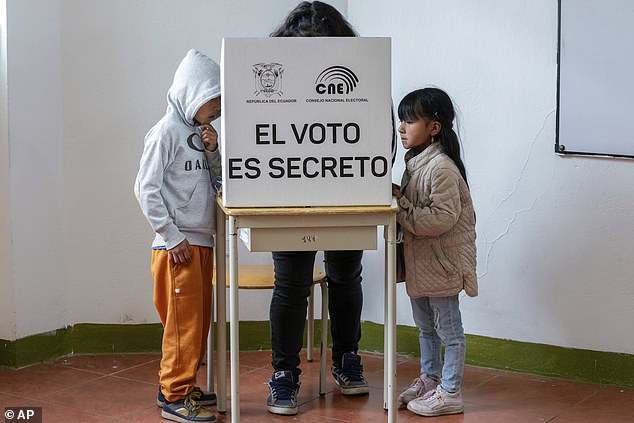
Children next to a voter marking questions on the ballot for a referendum proposed by President Daniel Noboa to support new security measures aimed at ending the criminal gangs that fuel the escalation of violence.
Like the other cartels, Los Lobos run drug trafficking operations and make much of their income by moving drugs purchased by Mexican cartels to groups in Colombia and then exporting the product from various ports on the coast of Ecuador.
But the group also controls much of the illegal mining sector in Ecuador, adding to its already vast wealth.
The gang is also accused of plotting political assassinations, and Ecuador’s attorney general, Diana Salazar, claimed Pico conspired to kill her.
Los Lobos are also accused of planning and carrying out the murder of anti-gang presidential candidate Fernando Villavicencio, who was shot to death in August 2023, days before the presidential election, as he left a campaign rally in Quito, the capital of the country.
Ecuador is situated between the world’s major cocaine producers, Colombia and Peru, and has become a hub for domestic and foreign drug cartels blamed for a series of gruesome massacres, kidnappings and extortions.
Fishermen have been massacred in ports, mutilated bodies have been hung from bridges and riots have left hundreds dead in prisons.
Prisons in particular have become a hotbed of violence, with cartels fighting for power within the country’s prisons, from where they then exert great influence.
Since 2018, the national homicide rate has more than quadrupled, going from six to 26 per 100,000 inhabitants, a rate that places it among the 15 worst countries.
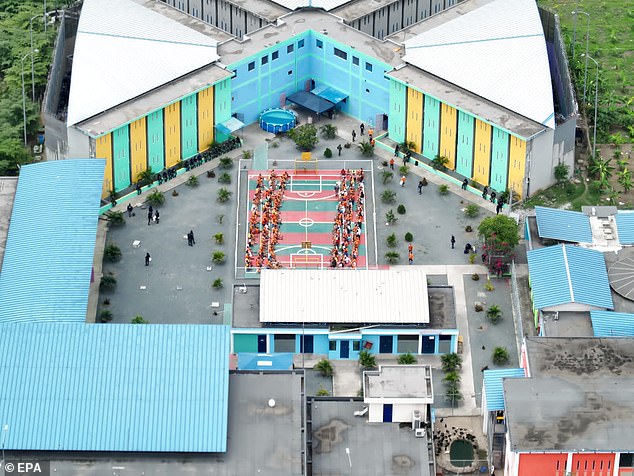
Prisons in particular have become a hotbed of violence, with cartels fighting for power within the country’s prisons, from where they then exert great influence.
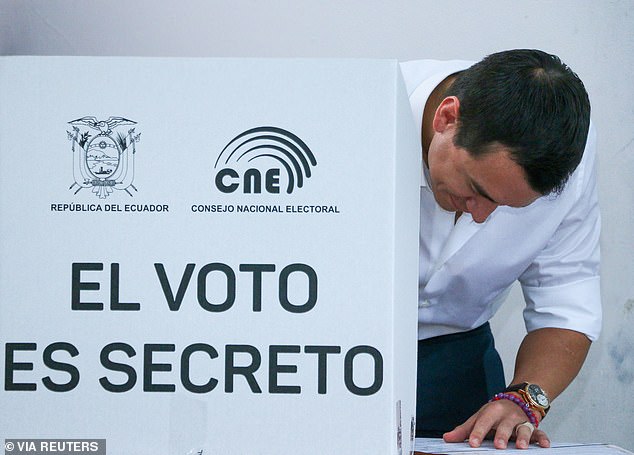
The president of Ecuador, Daniel Noboa, participates in a referendum on security measures to combat violence
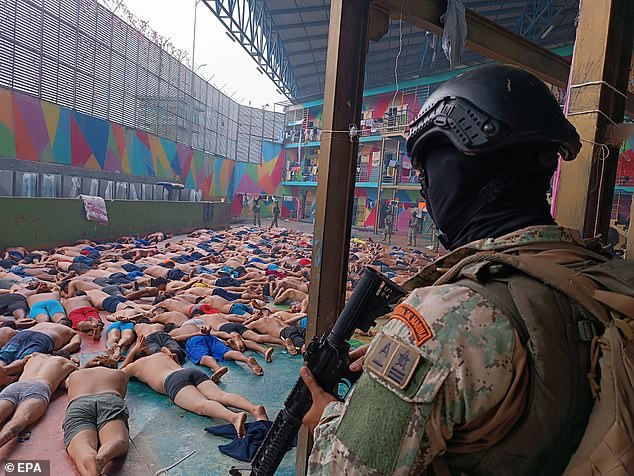
Behind the violence is what the United Nations Office on Drugs and Crime describes as a “prolonged increase in both supply and demand for cocaine” globally.
The country’s National Police counted 3,568 violent deaths in the first six months of this year, well above the 2,042 reported during the same period in 2022.
That year ended with 4,600 violent deaths, the highest number in the country’s history and double the 2021 total, with 2023 on track to have even more.
Behind the violence is what the United Nations Office on Drugs and Crime describes as a “prolonged increase in both supply and demand for cocaine” globally.
As the US market turns to other drugs such as fentanyl, the European market has driven demand for the powder, and Balkan gangs and the feared Italian ‘Ndrangheta mafia are understood to have expanded into Ecuador.
This, according to The Guardian, has overburdened local criminal groups who are accused of using extreme violence, much like that carried out by cartels in Mexico and other Latin American nations in recent decades.

